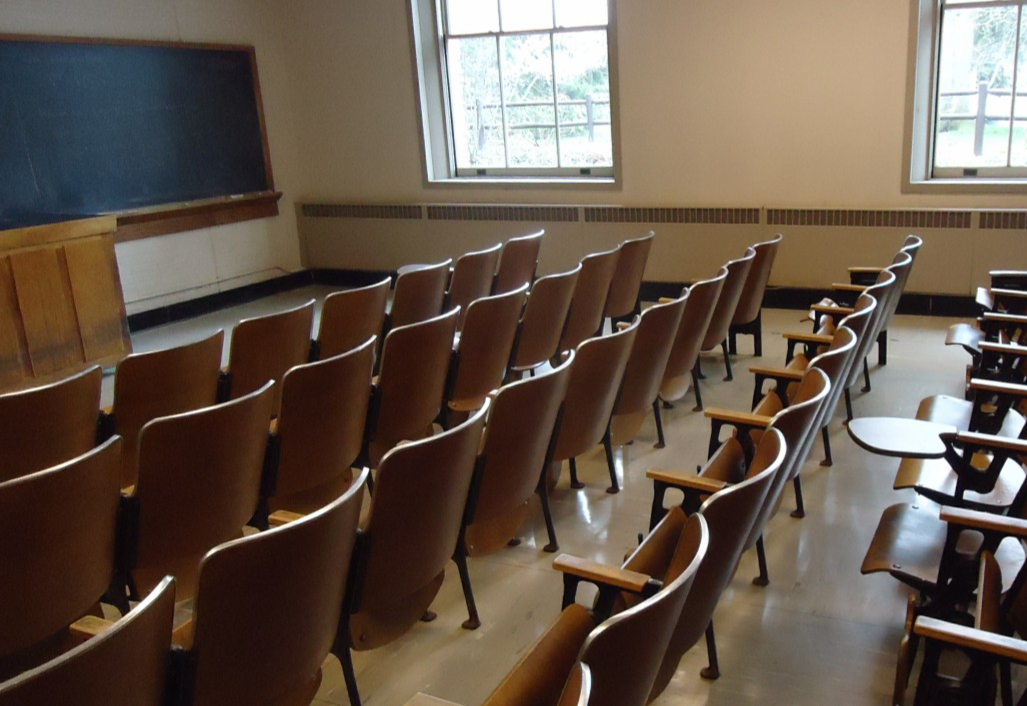Education
America, You Don’t Understand Academics at All
A former professor disputes the popular notion of academics as revolutionary rhetoricians and portrays them as nerdish study-hall weenies.

Dear America,
I write with some urgency because there has been a misunderstanding and a painful one for me and people like me. I’m an academic and have been for 40 years. I’m by no means an academic star, nor am I a public intellectual. I’m what you might call a “rank-and-file academic.” It’s quite uncharacteristic of me to even write such a letter as this one. But I’m moved to say my piece.
So, the misunderstanding. When I read the news or look at social media, I don’t see accurate representations of myself or my colleagues, that is, ordinary academics. What I see is a kind of crude caricature of academics.
As represented in the press and social media – and particularly of the right-leaning variety – the typical American academic is Leon Trotsky with an extravagantly paid job for life at a fancy university. “Dr. Trotsky” is a political radical. He (or she, or they) wants to tear down everything, beginning with “The American Way of Life” itself. Being the writerly type, Dr. Trotsky mostly manifests his revulsion at America with written words. He bombards national newspapers with leftist editorials that they won’t publish. After rejection, he publishes them in left-wing magazines. Dr. Trotsky is naturally on X where he holds forth on all the things that are wrong with America. He might even have a Substack newsletter so he can bang on about all the terrible things he’s discovered this week. It goes without saying that Dr. Trotsky uses his classroom as a mechanism for leftist indoctrination. He does not approach the topics of the classes he teaches dispassionately. No, not at all. He views his students as revolutionaries in training, and his job is to train them according to the Party Line.
America, this is not who we are. What we are is scholarly geeks. I’ll give myself as an example, and a largely representative one as far as I can tell.
I left Kansas to go to Grinnell College in 1980. Grinnell had a reputation for being liberal. I did not know this when I arrived. I went to Grinnell because a friend told me it was a “good school” and they gave me a generous aid package. There were liberal politics. I participated a bit. I recall going to a “Die-In” against nuclear weapons in 1983. But mostly what I did was go to class, the library, and the dining hall. I was there to study, full stop. And that’s what I did.
I’d never met a professor before I got to Grinnell. My first impression was that they were weird. Take my beloved advisor, a Russian historian. All he seemed to care about was Russian history. I recall trying to engage him in office hours in some political discussion. He would have none of it. He wanted to talk about Russian history. Did he have a home life? Did he have religious beliefs? Did he have political leanings? I had no clue. He was typical of all the professors I had at Grinnell. They were scholarly geeks.
I admired my advisor so I decided to go to grad school for Russian history. Almost everyone I talked to asked, “Are you sure you want to do that?” They knew the hard truth: America produces a lot more Ph.D.s than America needs. I knew that I might spend eight years grinding away and never get an academic job. Was I deterred? No. By this stage in my career, the work had become an end in itself. I wanted to learn everything I could about Russian history. Sure, it might cost me, but it was worth it. I was on my way to scholarly geekdom.
I went to Berkeley for grad school. Berkeley is synonymous with radical politics, and I engaged in a bit of it. I remember protesting against apartheid. I also lived in a hippie house-cum-dormitory. We had “feedback meetings” that were sort of like “struggle sessions.” And we ate a lot of rice and beans. But mostly what I and the other students in “PAX House” did was study. We were always in the library, in class, or, well, eating rice and beans.
My dissertation advisor at Berkeley was a kind of clone of my undergraduate advisor, only of Russian descent and very formal. He wore a coat and tie to the office every day. He seemed to be completely unaware of the world beyond Russian history. I recall that a miniseries about Peter the Great came out in 1986. My advisor mentioned it and I thought to my surprise, “Well, apparently he has a TV.”
I got my degree and had trouble finding an academic job. Did I care? No. I would persist. I wanted to do the work because the work was what mattered. I took post-docs, visiting positions, and taught in extension schools. I lived on nothing. To me, scholarly geek that I was, the sacrifice was worth it.
Eventually I got a tenure track job and became a professor. There were politics at my university. But, honestly, I could not be bothered with them. What I cared about was Russian history, researching it and teaching it. True, some of my colleagues were very liberal. For example, my excellent ex-chair told me he was a Marxist. This was a bit confusing, because if you looked at his scholarship and his administrative work, he was just, well, professional. So how did his Marxism affect his work? Not at all as far as I could tell.
This, America, is who we rank-and-file academics are: scholarly geeks. What we want to do is research and teach. We do not want to destroy “The American Way of Life.” In fact, most of us don’t want to engage in politics at all: We want to go to the library or lab or classroom so we can geek out on our research.
In conclusion, America, let me say this: We academics are here to help you and badly want to do so. We will do research to find out new things. We will publish articles and books that you can read should you wish. We will educate your children to the best of our ability. And we will do all this gladly and with thanks for the opportunity to do it all. It is, as a professor at my alma mater told me once, “God’s work.”
This article was originally published by RealClearPolitics and made available via RealClearWire.
Marshall Poe is a former professor and the founder and editor of The New Books Network.
-

 Civilization2 days ago
Civilization2 days agoWhy Europe Shouldn’t Be Upset at Trump’s Venezuelan Actions
-

 Accountability4 days ago
Accountability4 days agoWaste of the Day: Principal Bought Lobster with School Funds
-

 Executive3 days ago
Executive3 days agoHow Relaxed COVID-Era Rules Fueled Minnesota’s Biggest Scam
-

 Constitution4 days ago
Constitution4 days agoTrump, Canada, and the Constitutional Problem Beneath the Bridge
-

 Christianity Today1 day ago
Christianity Today1 day agoSurprising Revival: Gen Z Men & Highly Educated Lead Return to Religion
-

 Civilization2 days ago
Civilization2 days agoThe End of Purple States and Competitive Districts
-

 Executive2 days ago
Executive2 days agoWaste of the Day: Can You Hear Me Now?
-

 Executive3 days ago
Executive3 days agoWaste of the Day: States Spent Welfare in “Crazy Ways”











